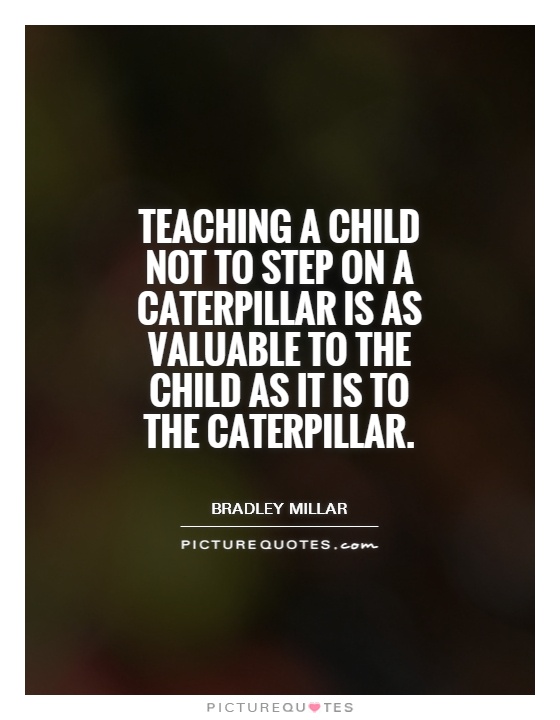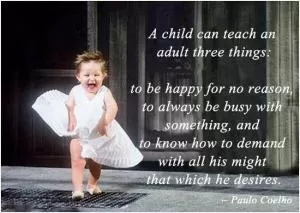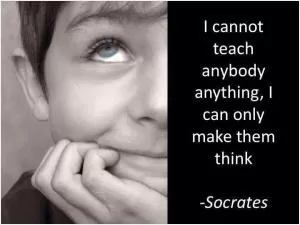Teaching a child not to step on a caterpillar is as valuable to the child as it is to the caterpillar

Teaching a child not to step on a caterpillar is as valuable to the child as it is to the caterpillar
Bradley Millar, a renowned child psychologist, firmly believes in the importance of teaching children empathy and compassion towards all living beings, no matter how small or insignificant they may seem. He often uses the analogy of teaching a child not to step on a caterpillar to illustrate this point. In Millar's view, this simple act of kindness towards a tiny creature can have a profound impact on a child's development and overall well-being.Millar argues that teaching a child not to harm a caterpillar is not just about protecting the caterpillar itself, but also about instilling in the child a sense of empathy, respect, and responsibility towards all living things. By teaching children to treat even the smallest creatures with care and compassion, parents and educators can help foster a sense of interconnectedness and empathy that will serve them well throughout their lives.
Moreover, Millar believes that teaching children to respect and care for nature can have a positive impact on their mental and emotional health. Research has shown that spending time in nature and engaging with the natural world can have numerous benefits for children, including reducing stress, improving mood, and enhancing cognitive development. By teaching children to value and protect all living beings, parents and educators can help them develop a deeper connection to the natural world and reap the many benefits that come with it.












 Friendship Quotes
Friendship Quotes Love Quotes
Love Quotes Life Quotes
Life Quotes Funny Quotes
Funny Quotes Motivational Quotes
Motivational Quotes Inspirational Quotes
Inspirational Quotes